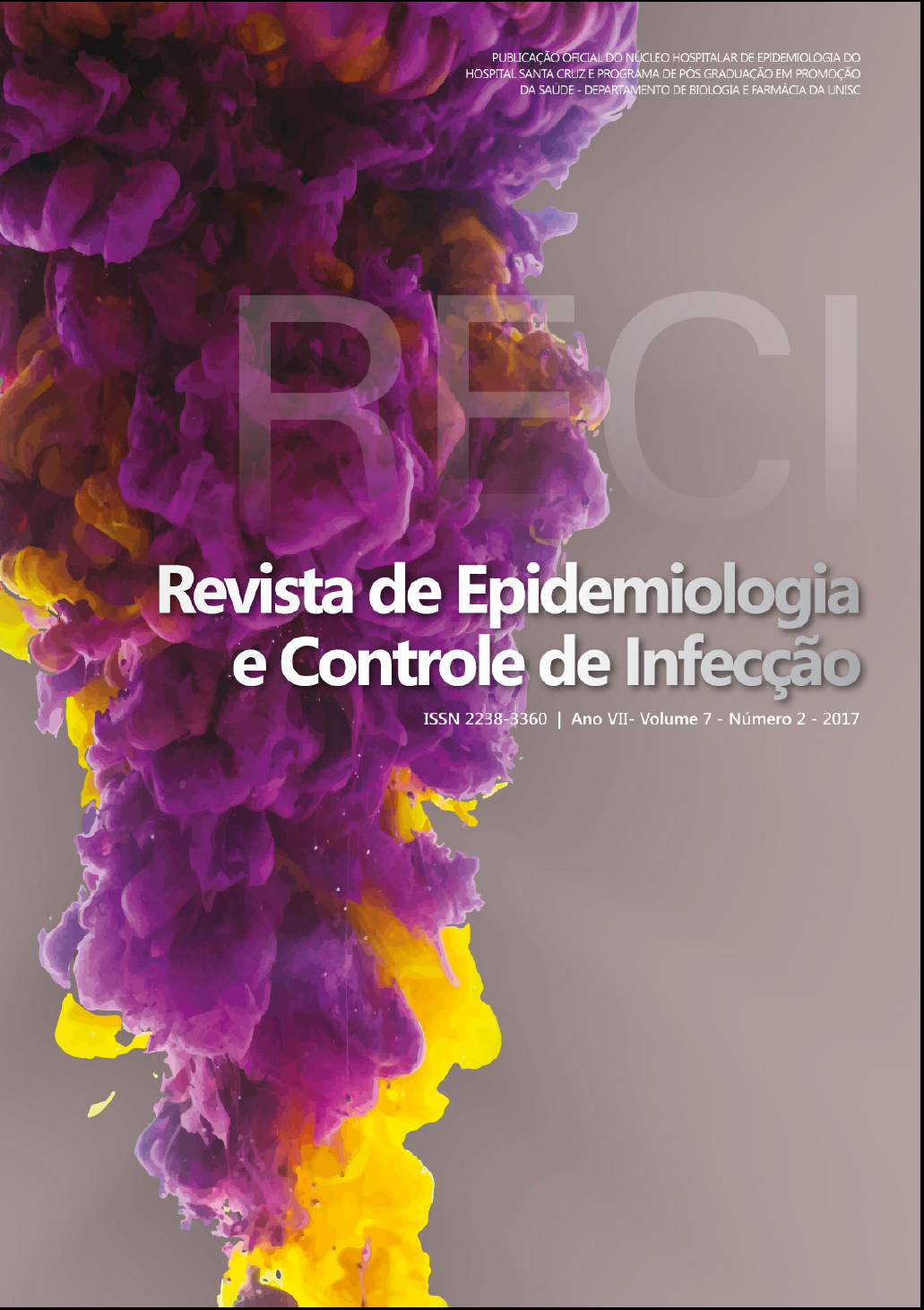Parasitological and epidemiological study in children and food handlers during 3 years at a daycare center in Paraíba
DOI:
https://doi.org/10.17058/reci.v7i2.7981Abstract
Background and Objectives: It is estimated that intestinal infections caused by protozoa and helminths affect around of 3.5 billion people, causing disease in about 450,000,000 around the world, most of these in children. The purpose of this research was to perform a parasitological and epidemiological study in children and food handlers at a daycare center in a city of Paraíba, evaluating the data collected during the period from 2013 to 2015. Methods: In order to research about the enteroparasites, fecal collectors were distributed and an epidemiological questionnaire was applied for each participant. The collected material was analyzed at the Parasitology Laboratory Clinic of the Federal University of Paraiba, through the spontaneous sedimentation technique. Results: Among 278 samples analyzed, 55.7%, or in other words, 155 people were infected with at least one parasite; noticing that 2013 had the higher rates, with the significant variables: drinking water (with some treatment) and the presence of water tank without lid. The most affected age range was 1-10 years and the main parasites were Ascarislumbricoides, Giardia duodenalis, Endolimax nana and Entamoeba histolytica/E. dispar. Conclusion: It is evident the need to implement a proper basic sanitation besides health educational activities in daycare centers in order to guide those that directly or indirectly deal with the children, improving the quality of life for all. KEYWORDS: Child. Child Day Care Centers. Parasites.Downloads
Downloads
Published
How to Cite
Issue
Section
License
The author must state that the paper is original (has not been published previously), not infringing any copyright or other ownership right involving third parties. Once the paper is submitted, the Journal reserves the right to make normative changes, such as spelling and grammar, in order to maintain the language standard, but respecting the author’s style. The published papers become ownership of RECI, considering that all the opinions expressed by the authors are their responsibility. Because we are an open access journal, we allow free use of articles in educational and scientific applications provided the source is cited under the Creative Commons CC-BY license.


